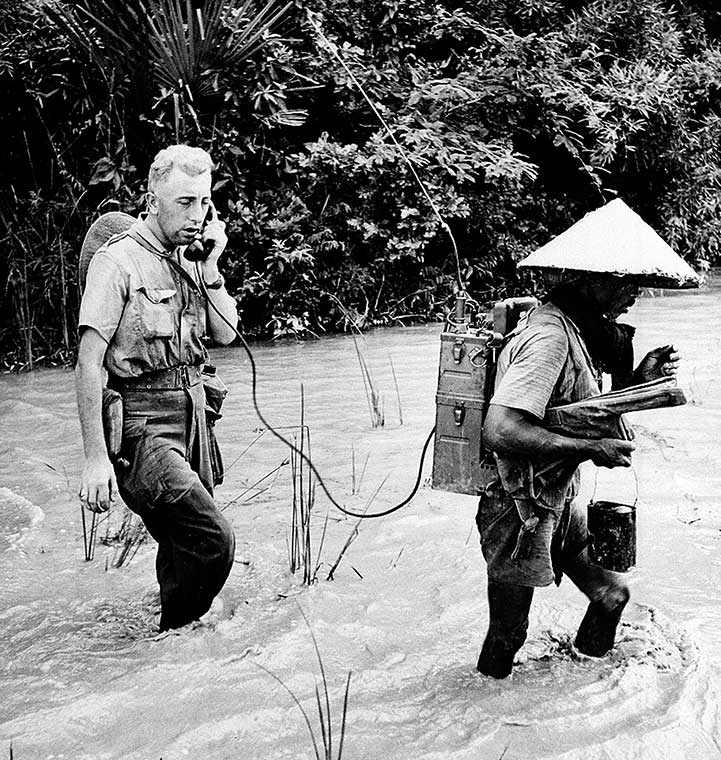

Dulles favored an air attack on Dien Bien Phu, but many others in the administration disagreed. military should become directly involved in Vietnam. After the French defeat at Dien Bien Phu, discussions within the American government revolved around whether the U.S. The battle of Dien Bien Phu proved decisive in bringing about French withdrawal from Vietnam. Unprepared to meet the Viet Minh forces and artillery, the French surrendered in May. In March 1954, the Viet Minh (with strong support from communist China) launched a series of attacks on the French in this region. Both the Viet Minh and the French gathered large forces near the town of Dien Bien Phu in northwestern Vietnam.

Heavy Viet Minh aggression forced France to abandon its plan and counter these new attacks.

In response to the threat of an expanded French army, the Viet Minh invaded Laos. also gave strong military support to France, paying for nearly one-third of the war's cost by 1952. The French considered this government officially a part of the French Union, though no longer a colony. supported the Vietnamese government that the French had fashioned, under the leadership of Bao Dai. During the First Indochina War, the United States ended its support for Ho and the Viet Minh, denouncing the communist group and its leader. Under China's guidance, the Viet Minh staged a bloody land-reform campaign against the French. The French called this war the "First Indochina War" the Vietnamese called it the "French War." The war raged for almost ten years, with communist China becoming increasingly involved in providing aid to the Viet Minh. In 1947, the Viet Minh entered a full-scale war with France in an attempt to drive out the colonial power for good and establish communist control. The United States joined in the celebration. August 1945, Ho Chi Minh declared Vietnam independent from France.


 0 kommentar(er)
0 kommentar(er)
